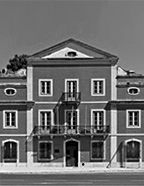

................................
Historiography
I
This was a clear innovation (Silva Rêgo, History in times of Fascism, 27) in theoretical terms, albeit in a logic of continuity with nineteenth-century positivism. However, the most interesting aspect of Melo e Matos' text was his comparison between history and the exact sciences: "The historical method is perfectly similar to that of the exact sciences, since it is the hypothesis, induced from facts, the number of which deemed sufficient, that must guide the pursuit of new knowledge. This pursuit does not have, nor can it have, the character of experience, since it lacks voluntariness; however, in the circumstance of being directed, it cannot be catalogued as observation either. / Only the much greater complexity of phenomena and the impossibility of eliminating disturbing factors make the degree of historical probability lower than that of other sciences. / Thus, History, regarded as science, is constituted by a set of hypotheses with all the characteristics of scientific truth and value measured by their degree of probability; although smaller than in other sciences, the very notion of probability implies the admissibility of error and constitutes a permanent characteristic of scientific truth." (APH, Bulletin 1944, 94)
This presentation sheds further light on the meaning of history-science for these men. It was a highly mechanical, causal, metonymic history, in pursuit of laws. Moreover, while these laws are frequently viewed as being immutable in nature, they are also provisional in the sense that they are not definitively knowable. Thus, this perspective is perfectly coherent with the idea of historical revisionism underlying the statutes of the Portuguese Academy of History (APH).
The Academy's focus on documents was another important strand of its concern with knowledge, and such importance was immediately visible in the institution's publication lists. Throughout the Estado Novo period, the Academy published more collections of documents than any other type of historiographical work. These compilations were usually lengthy, bearing only short prefaces. On the other hand, the Academy also published Annals, which contained original works by scholars. However, even these works partly consisted of documents. Instead of simply citing documents, they were usually used for the bibliography and the documents were routinely published along with the work, in annexes. Indeed, the Academy was far more focused on the publication of collections and works that included documents than on the publication of long narratives, although occasionally a less document-orientated work was published.
